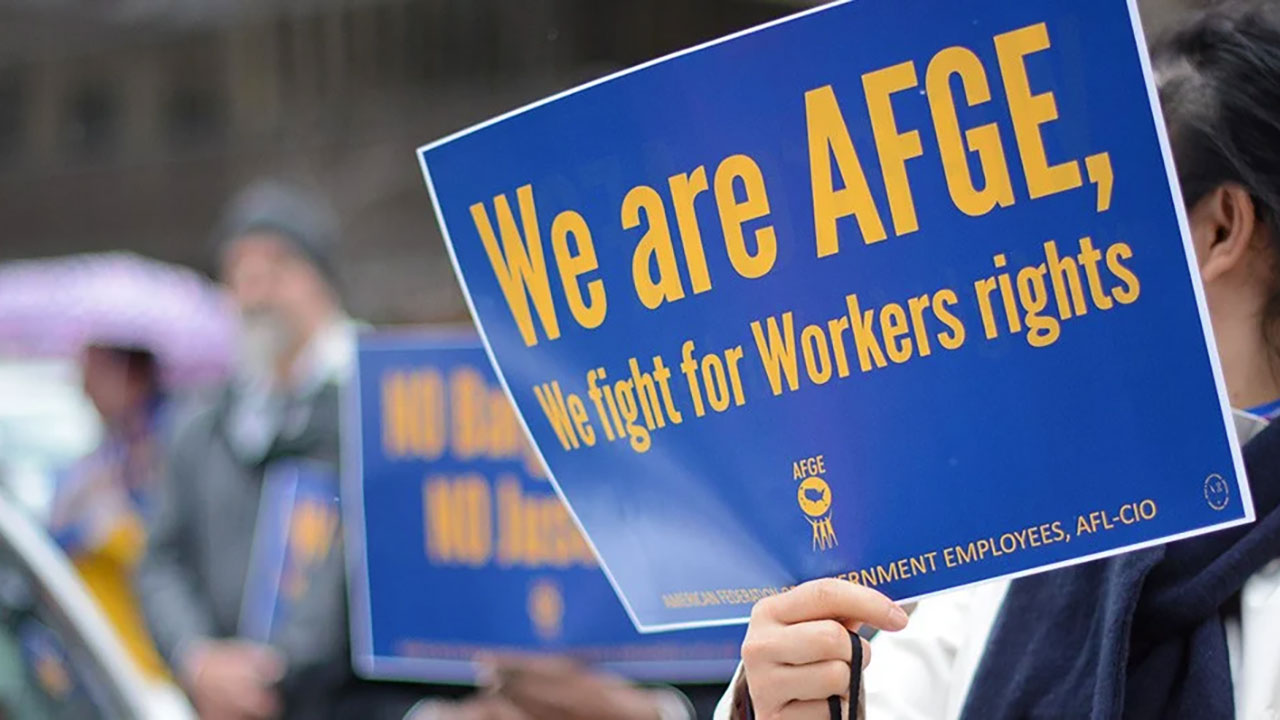Judge blocks Trump from ending union bargaining for federal workers

A FEDERAL JUDGE blocked President Donald Trump’s administration from eliminating union bargaining for hundreds of thousands of federal workers at 21 agencies.
US District Judge James Donato in San Francisco agreed with the American Federation of Government Employees (AFGE) and other unions that Mr. Trump’s March 27 executive order exempting many federal agencies from obligations to bargain with unions was likely illegal.
Eliminating collective bargaining would allow agencies to alter working conditions and fire or discipline workers more easily, and it could prevent unions from challenging Trump administration initiatives in court.
Mr. Donato issued a preliminary injunction that blocks 21 agencies from implementing Mr. Trump’s order pending the outcome of a trial in the lawsuit by the six unions, who he said, “appear to have been deemed hostile to the president.”
The judge, an appointee of President Barack Obama, said the unions had established they were likely to prove Mr. Trump’s executive order had a chilling effect on their right to free speech under the US Constitution’s First Amendment.
He said the White House had in a fact sheet published with the order “expressed a clear point of view that is hostile to federal labor unions and their First Amendment activities,” citing their opposition to Mr. Trump’s agenda.
“All of this is solid evidence of a tie between the exercise of First Amendment rights and a government sanction,” Mr. Donato wrote.
His ruling followed a decision by a different judge in Washington, DC, in April that blocked Mr. Trump’s order from being implemented at seven agencies including the departments of Justice, Treasury, and Health and Human Services.
A federal appeals court on May 16 paused that ruling while it considers the Trump administration’s appeal. Mr. Donato’s ruling applies to those seven agencies and the departments of Veterans Affairs, Agriculture, State and Labor, among others.
AFGE President Everett Kelley in a statement welcomed the ruling, saying Mr. Trump’s order “was clearly a retaliatory attempt to bust federal unions and wreak havoc on our nation’s workforce and the services they provide to the American people.”
White House spokesperson Taylor Rogers said Mr. Trump’s executive order was lawful. “The Trump administration looks forward to ultimate victory on the issue,” he said in a statement.
Mr. Trump’s executive order exempted agencies that he said “have as a primary function intelligence, counterintelligence, investigative, or national security work,” from collective bargaining obligations, significantly expanding an existing exception for workers with duties impacting national security, such as certain employees of the CIA and FBI.
The lawsuits challenging the executive order say it was meant to punish federal worker unions that have sued over Mr. Trump’s other efforts to overhaul the government, including the mass firings and layoffs of agency employees.
Unions also argue that the vast majority of workers covered by the order do not perform national security or intelligence work.
Mr. Donato noted Mr. Trump applied the national security label “to an unprecedented swath of federal agencies, including whole cabinet departments for the first time in history.”
In separate litigation, the Trump administration filed a pair of lawsuits against AFGE and another union seeking to invalidate existing bargaining agreements in light of Mr. Trump’s order shortly after he issued it.
A judge in Kentucky on May 20 said the Treasury department lacked standing to sue over a union contract covering thousands of Internal Revenue Service employees and dismissed the agency’s lawsuit. A separate case that eight agencies filed against AFGE is pending in Texas federal court. — Reuters



